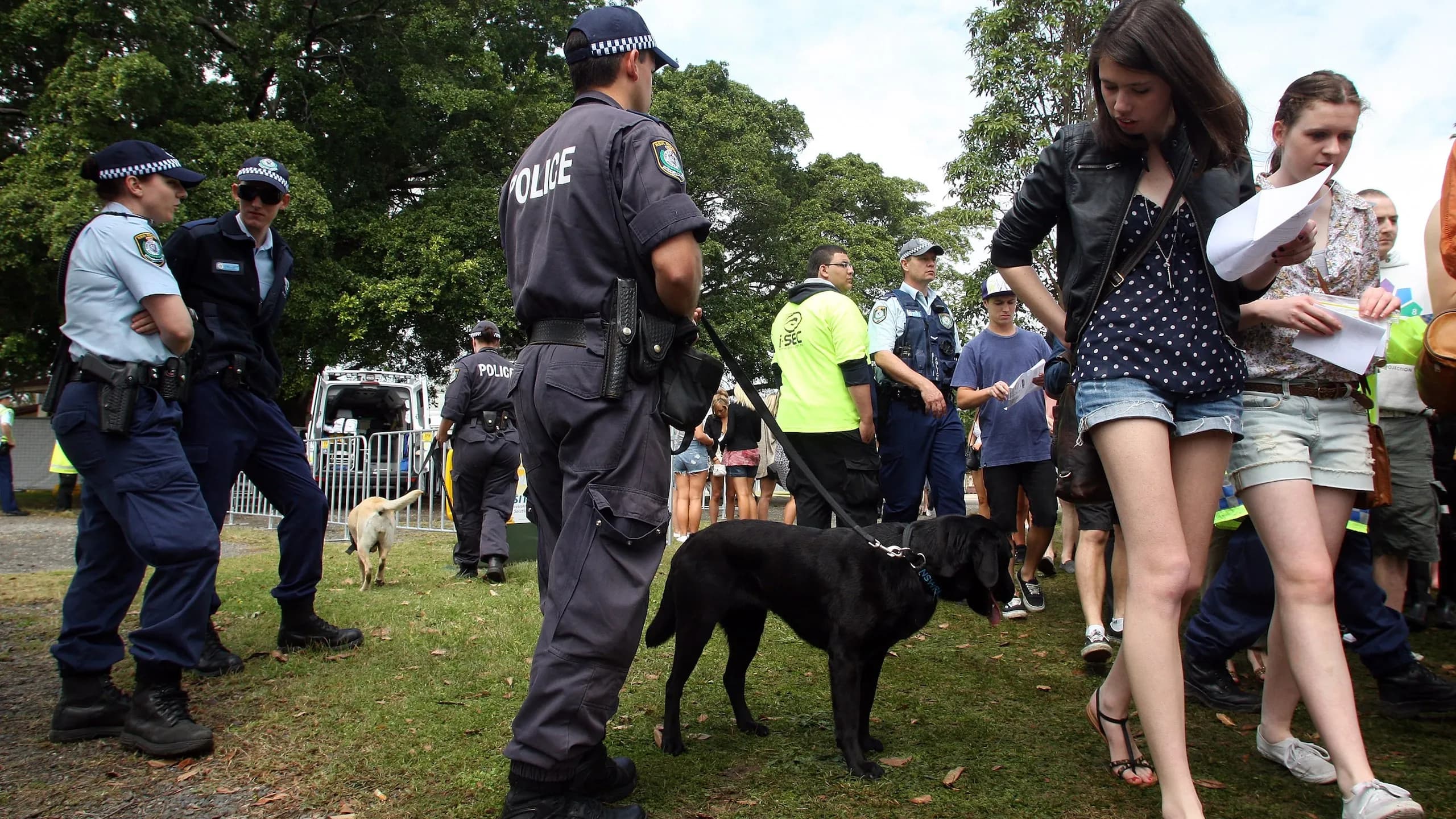We're loading the full news article for you. This includes the article content, images, author information, and related articles.
An Australian state's decision to retain controversial police tactics at music festivals, despite evidence of increased risk, highlights a global clash between public health and law enforcement approaches to drug use relevant to Kenya's own policy debates.

SYDNEY, AUSTRALIA – The government of New South Wales (NSW) on Tuesday, 28 October 2025, announced it would reject key recommendations from its own landmark drug summit, opting to continue the use of police sniffer dogs and strip-searches at music festivals. The decision has drawn sharp criticism from health advocates who argue the tactics are not only ineffective but also dangerous, pushing the state to the centre of a global debate on whether to treat drug use as a criminal issue or a public health matter.
NSW Police Minister Yasmin Catley defended the move, stating that sniffer dogs and strip-searches remain “important investigative tools” for law enforcement. In its official response to the April 2025 NSW Drug Summit report, the government labelled the recommendation to pause these measures as “operationally infeasible.”
This stance directly contradicts the findings of the summit, co-chaired by former political leaders Carmel Tebbutt and John Brogden, which concluded that such high-visibility policing can increase the risk of drug-related harm. Experts and harm reduction advocates have long presented evidence that the presence of drug-detection dogs can lead to panicked, high-risk behaviours such as “preloading”—consuming all of one's drugs at once before entering an event to avoid detection—which has been linked to overdoses.
Data has also cast doubt on the effectiveness of these methods. An analysis by Harm Reduction Australia found that approximately 60% of searches conducted after a positive indication from a sniffer dog do not result in the discovery of illicit substances. Similarly, only about one in ten strip-searches in NSW has resulted in drugs being found.
While rejecting the advice on policing tactics, the NSW government did embrace other harm-reduction proposals from the summit's 56 recommendations. It has committed to a 12-month trial of pill testing, also known as drug checking, at up to 12 music festivals. This service allows individuals to anonymously submit a small sample of a substance to check for purity, potency, and the presence of dangerous contaminants. Proponents argue this provides users with critical information to make safer choices, with evidence from other jurisdictions showing that between 10% and 20% of users discard their drugs after testing.
Furthermore, the government gave “in-principle” support to creating a legal medical defence for people prescribed cannabis who drive. Currently, NSW law operates on a zero-tolerance basis, making it an offence to drive with any detectable amount of THC, the psychoactive component of cannabis, in one's system, regardless of impairment. This has forced legally prescribed patients to choose between their medication and their driver's license. A working group will now assess reform options to potentially align NSW with other Australian states like Victoria and Tasmania that have already enacted such defences.
The NSW government's mixed response—embracing clinical harm reduction like pill testing while intensifying policing—mirrors a broader international struggle over drug policy. This tension is highly relevant in East Africa, where nations are confronting their own drug use and trafficking challenges.
In Kenya, the National Authority for the Campaign Against Alcohol and Drug Abuse (NACADA) has also adopted a nuanced stance. While its official policy acknowledges harm reduction, it prioritizes prevention and stops short of explicitly endorsing measures like needle exchange programs as standalone interventions. However, NACADA does support alternatives to incarceration for minor drug offences, framing addiction as a health condition rather than a moral failing, a significant step towards a public health approach. This aligns with recent efforts to establish community-based rehabilitation programs to make treatment more accessible and affordable.
The debate over cannabis legalization also connects the two contexts. While NSW is slowly moving to accommodate medical users, a robust debate continues in Kenya over the potential economic and medical benefits of legalizing marijuana, especially as regional neighbours like Rwanda and Uganda have already approved its production for export. At the same time, Kenyan authorities are battling large-scale trafficking of hard drugs, with a recent record seizure of methamphetamine worth Ksh8.2 billion off the Mombasa coast underscoring the scale of the challenge.
The Australian experience serves as a critical case study. As Kenya continues to refine its own strategies under the Narcotic Drugs and Psychotropic Substances (Control) Act, the outcomes of NSW's dual approach of sanctioning pill testing while maintaining intimidating search tactics will offer valuable lessons on the complex path toward effective, evidence-based drug policy.
Keep the conversation in one place—threads here stay linked to the story and in the forums.
Sign in to start a discussion
Start a conversation about this story and keep it linked here.
Other hot threads
E-sports and Gaming Community in Kenya
Active 9 months ago
The Role of Technology in Modern Agriculture (AgriTech)
Active 9 months ago
Popular Recreational Activities Across Counties
Active 9 months ago
Investing in Youth Sports Development Programs
Active 9 months ago